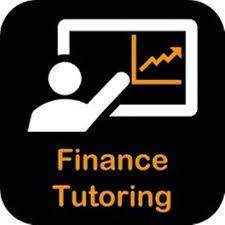Finance Tutor: Guiding You Through the World of Money and Markets

In today’s increasingly complex economic landscape, understanding finance is not just an advantage—it’s a necessity. Whether you're a student aiming for a top grade, a professional seeking to upskill, or someone trying to manage personal wealth more effectively, the guidance of a finance tutor can make all the difference.
What is a Finance Tutor?
A finance tutor is an expert who provides personalized instruction and support in various areas of finance. These educators can help individuals understand foundational concepts such as budgeting, investing, financial analysis, and corporate finance, as well as advanced topics like derivatives, risk management, and financial modeling. Unlike classroom settings, tutoring offers a tailored learning experience that focuses specifically on the learner’s goals and pace.
Why You Might Need a Finance Tutor
Finance is a broad and sometimes intimidating subject, especially for those without a strong mathematical or economic background. Here are some common reasons people seek out a finance tutor:
1. Academic Support
Students pursuing degrees in finance, accounting, or economics often face complex material and demanding coursework. A tutor can help clarify difficult concepts, prepare for exams, and improve academic performance.
2. Professional Development
Finance plays a vital role in many careers, from investment banking and corporate strategy to real estate and entrepreneurship. Professionals preparing for certifications such as the CFA (Chartered Financial Analyst) or CPA (Certified Public Accountant) benefit greatly from structured tutoring.
3. Personal Financial Literacy
Many adults struggle with managing personal finances, budgeting, investing, and saving for retirement. A finance tutor can provide practical guidance, empowering individuals to make informed decisions and avoid common pitfalls.
4. Entrepreneurial Ventures
Small business owners and aspiring entrepreneurs need to understand key financial principles to manage cash flow, analyze profitability, and make strategic decisions. A tutor can be an invaluable resource in navigating these challenges.
Areas of Finance a Tutor Can Cover
Finance encompasses various fields, and a good tutor will be proficient in multiple areas, including:
-
Corporate Finance: Capital budgeting, financial statements, capital structure, and valuation.
-
Investment Analysis: Stocks, bonds, mutual funds, portfolio management, and risk-return trade-offs.
-
Financial Markets and Institutions: Understanding how markets operate, roles of different financial institutions, interest rates, and regulations.
-
Quantitative Finance: Statistics, econometrics, and financial modeling using tools like Excel, Python, or R.
-
Behavioral Finance: Psychological influences on financial decision-making.
-
Personal Finance: Budgeting, debt management, retirement planning, and insurance.
Qualities of an Effective Finance Tutor
Choosing the right finance tutor is crucial. Here are the traits that define a top-tier tutor:
-
Expertise: A solid academic background and professional experience in finance.
-
Communication Skills: Ability to explain complex topics clearly and concisely.
-
Adaptability: Customizes the teaching approach to suit individual learning styles and needs.
-
Patience and Encouragement: Creates a supportive learning environment to build confidence.
-
Technological Proficiency: Familiarity with tools like Excel, financial calculators, and financial software platforms.
Online vs. In-Person Finance Tutoring
The rise of digital education has made finance tutoring more accessible than ever. Both online and in-person tutoring have their advantages:
-
Online Tutoring: Flexible scheduling, access to a global pool of tutors, often more affordable, and uses tools like screen sharing, virtual whiteboards, and interactive quizzes.
-
In-Person Tutoring: Offers direct engagement and may be preferable for learners who benefit from face-to-face interaction.
How to Find a Good Finance Tutor
To find the right tutor, consider the following steps:
-
Define Your Goals: Are you preparing for an exam? Trying to master financial modeling? Managing personal debt?
-
Check Qualifications: Look for tutors with finance degrees, certifications (CFA, CPA), or industry experience.
-
Read Reviews and Testimonials: Feedback from past students can give insight into a tutor’s effectiveness.
-
Request a Trial Session: Many tutors offer free or low-cost trial lessons.
-
Evaluate Compatibility: A good tutor-student relationship is key to success. Make sure the teaching style fits your learning needs.
The Future of Finance Tutoring
As the world of finance evolves, so does finance education. Emerging technologies like AI, blockchain, and machine learning are reshaping finance, and tutors are now incorporating these topics into their teaching. Moreover, gamification, interactive simulations, and real-time data analysis are becoming part of modern finance tutoring.
Finance tutors are also increasingly collaborating with educational platforms, creating online courses, YouTube content, and webinars to reach broader audiences.
Conclusion
A finance tutor is more than just an academic guide—they are a mentor, a motivator, and a partner in your learning journey. Whether you are decoding financial statements, analyzing investment portfolios, or planning for retirement, a good finance tutor can equip you with the knowledge and confidence needed to master the financial world.
- Art
- Causes
- Crafts
- Dance
- Drinks
- Film
- Fitness
- Food
- Juegos
- Gardening
- Health
- Home
- Literature
- Music
- Networking
- Other
- Party
- Religion
- Shopping
- Sports
- Theater
- Wellness
